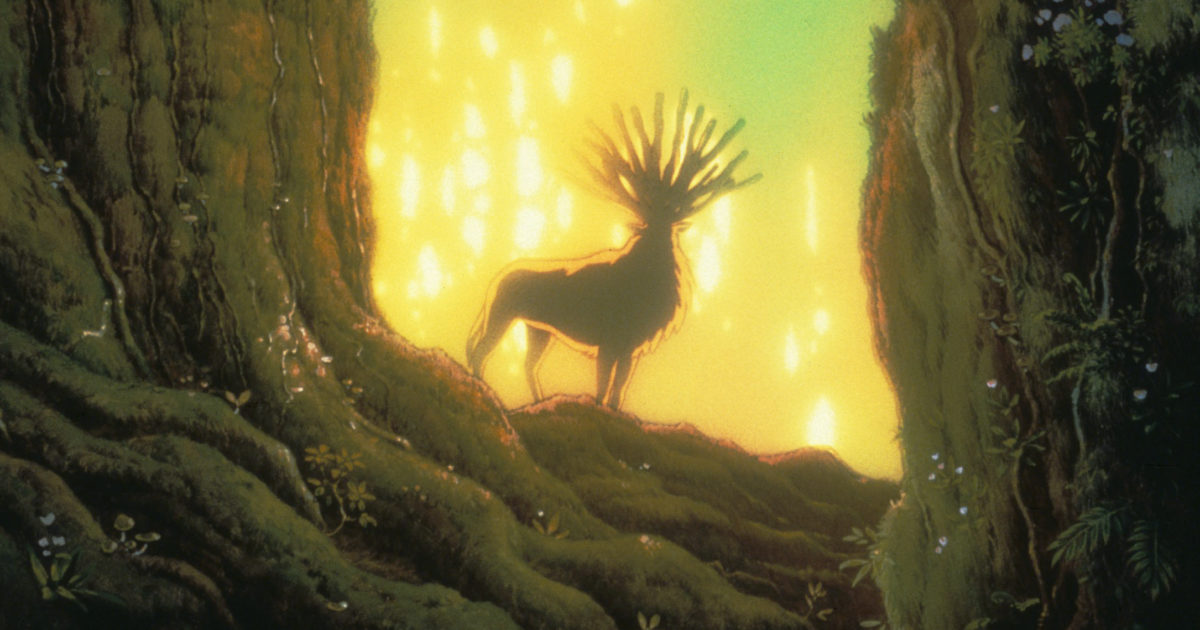
Steve Alpert spent 15 years at Studio Ghibli, working to get films such as Princess Mononoke and Spirited Away distributed outside of Japan. He describes the experience in his new book Sharing a House with the Never-Ending Man.
“I don’t think of it as a business memoir, necessarily,” Alpert says in Episode 422 of the Geek’s Guide to the Galaxy podcast. “To me it’s more about what it’s like, as a foreigner living in Japan, being the person who’s responsible for explaining Japan to people who don’t get Japan—like, for example, business executives at major Hollywood studios.”
Alpert describes Studio Ghibli as a community devoted to artistic excellence, where genius animation director Hayao Miyazaki had total creative control. This atmosphere led to an impressive string of international hits, but also strained nerves due to Miyazaki’s habit of waiting until the last minute to write endings for his movies.
“Creative people don’t necessarily follow the accepted pathways,” Alpert says. “That was his process. I don’t think anybody would ever dream of trying to emulate it or duplicate it, but it worked for him.”
As the company’s only native English speaker, Alpert often found himself acting as impromptu press agent. In particular he remembers a phone call from a pushy New York Times reporter who demanded an interview with Miyazaki. “Miyazaki wasn’t going to be in the country, and it wouldn’t have been possible to do the interview,” Alpert says. “But he said, ‘Look, just tell me what time I can do the interview and I’m coming down.’ And he had said something about, ‘I saw the movie with the space aliens and the boy riding the tiger,’ and none of that was in the film.”
Alpert also traveled extensively, negotiating contracts with fantasy authors such as Diana Wynne Jones and Ursula K. Le Guin, and working with Neil Gaiman on the English language version of Princess Mononoke.
“When we did the English dubbed version of Princess Mononoke with Miramax, Miramax hired Neil Gaiman to write the screenplay,” Alpert says. “It was him and me against the Miramax people on a lot of things, because they really wanted to change the film, and Neil was more respectful of the original filmmakers’ wishes.”
Listen to the complete interview with Steve Alpert in Episode 422 of Geek’s Guide to the Galaxy (above). And check out some highlights from the discussion below.
Steve Alpert on Howl’s Moving Castle:
“Part of my job at Ghibli was to get the rights to make the movies in the first place, so I went to Bristol, where Diana Wynne Jones lived when she was alive, for the final level of negotiations. Fortunately she knew the work of Hayao Miyazaki, so it was a little bit easier. People who write novels are generally a little reluctant to give over their works to filmmakers, because they’re not sure how they’ll be treated. … She ended up showing me around Bristol, which is incredibly interesting, especially in the area where she lived. In the end we didn’t end up talking much about the work itself. I think she just wanted to be reassured that Mr. Miyazaki really was going to be making this himself, which he was.”
Steve Alpert on dubbing:
“When we started using Pixar people to do the dubs, the level just went way up. Those people are just unbelievably talented. So that’s one thing, is you get the talent. The second thing is money. I hate to say it, but it costs money to do those lines over and over until you get them perfect. … A lot of the actors surprise you in a lot of ways. We had Patrick Stewart do a voice in one of the films, and he would do a line just amazing, just perfect. And then he would want to do it again. He would go, ‘No, I can do it better.’ And a lot of the people who did voices for us were like that. You would go, ‘Wow, this is perfect,’ and they would go, ‘Let’s do another two, just in case.’”
Steve Alpert on the media:
“The problem was that a lot of people know that Hayao Miyazaki is famous, but they don’t exactly know what he’s famous for. So especially at what they called ‘caravans’—publicity caravans to promote the film—you would get people coming in who had heard the name but had no idea what he did, and the questions they asked him were, I would have to say, insulting. … A lot of the interviews are pretty much the same. They even ask, ‘Could you tell us about your film?’ You know what I mean? ‘Can you tell us about your film’? So you haven’t seen it and you don’t have any questions? Is that what you’re saying? That’s how a lot of the interviews go.”
Steve Alpert on Hayao Miyazaki:
“All the [Disney] animators had pirated versions of Ghibli’s art books on their desks and little Totoros on their desks, and they were very willing to talk about Hayao Miyazaki and Studio Ghibli. I asked one of the directors, ‘Everybody says that Miyazaki was one of the greatest animation directors ever. What is it exactly that makes him so great?’ And the guy explained to me, ‘Look, if you’re animating a scene, you might have the characters go right to left, left to right, up and down, down and up. But if you’re going to have them go back into space, that’s really difficult. You have to be really brave to go that route in hand-drawn animation. And Miyazaki is fearless. He is absolutely fearless, and he is one of the few animators who can bring it off.’”
